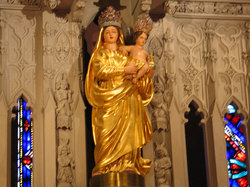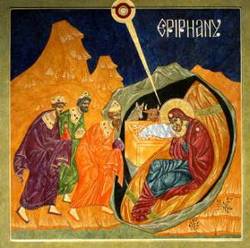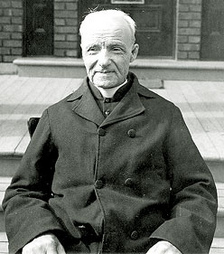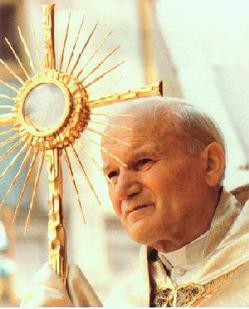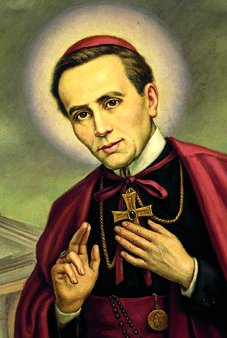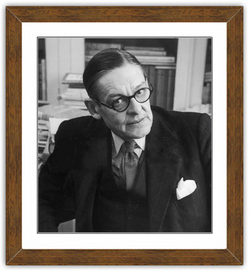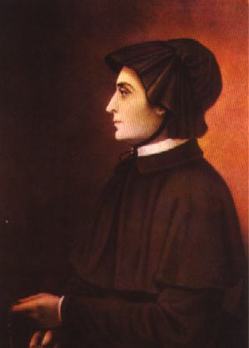 Lord God, You blessed Elizabeth Seton with gifts of grace as wife and mother, educator and foundress, so that she might spend her life in service to Your people. Through her example and prayers may we learn to express our love for You in love for others.
Lord God, You blessed Elizabeth Seton with gifts of grace as wife and mother, educator and foundress, so that she might spend her life in service to Your people. Through her example and prayers may we learn to express our love for You in love for others.
At the Mass which Pope Paul VI declared Seton a saint he said:
Saint Elizabeth Ann Seton is an American. All of us say this with spiritual joy, and with the intention of honoring the land and the nation from which she marvelously sprang forth as the first flower in the calendar of the saints. This is the title which, in his original foreword to the excellent work of Father Dirvin, the late Cardinal Spellman, Archbishop of New York, attributed to her as primary and characteristic: “Elizabeth Ann Seton was wholly American”! Rejoice, we say to the great nation of the United States of America. Rejoice for your glorious daughter. Be proud of her. And know how to preserve her fruitful heritage. This most beautiful figure of a holy woman presents to the world and to history the affirmation of new and authentic riches that are yours: that religious spirituality which your temporal prosperity seemed to obscure and almost make impossible. Your land too, America, is indeed worthy of receiving into its fertile ground the seed of evangelical holiness. And here is a splendid proof-among many others-of this fact.
May you always be able to cultivate the genuine fruitfulness of evangelical holiness, and ever experience how-far from stunting the flourishing development of your economic, cultural and civic vitality -it will be in its own way the unfailing safeguard of that vitality. Saint Elizabeth Ann Seton was born, brought up and educated in New York in the Episcopalian Communion. To this Church goes the merit of having awakened and fostered the religious sense and Christian sentiment which in the young Elizabeth were naturally predisposed to the most spontaneous and lively manifestations. We willingly recognize this merit, and, knowing well how much it cost Elizabeth to pass over to the Catholic Church, we admire her courage for adhering to the religious truth and divine reality which were manifested to her therein. And we are likewise pleased to see that from this same adherence to the Catholic Church she experienced great peace and security, and found it natural to preserve all the good things which her membership in the fervent Episcopalian community had taught her, in so many beautiful expressions, especially of religious piety, and that she was always faithful in her esteem and affection for those from whom her Catholic profession had sadly separated her.
· Born in New York City, August 28, 1774
· Married William Magee Seton, January 25, 1794; mother of 5 children; William died in Pisa, December 27, 1803
· Received into the Catholic Church, Ash Wednesday, March 14, 1805, by Father Matthew O’Brien in St. Peter’s Church, Barclay Street, NY
· Formation of the new community in 1808, first Religious Congregation of women in the USA
· Died at Emmitsburg, Maryland, January 4, 1821
· Canonized on September 14, 1975 by Pope Paul VI
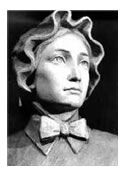
Her devotion to the Eucharist, sacred Scripture, especially the 23rd Psalm, and the Blessed Virgin Mary are hallmarks of Seton’s spiritual life. Following the example of Saints Vincent de Paul and Louis de Marillac hers was an apostolic spirituality.
The Church says officially: In Emmitsburg, Maryland, USA, Saint Elizabeth Ann Seton who, after having been widowed, professed the Catholic Faith and worked competently at educating girls and feeding impoverished children as a member of the Congregation of the Sisters of Charity of Saint Joseph, which she founded. (Martyrologium Romanum, 2005)
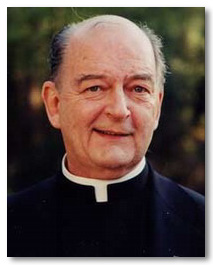 Before 10 a.m. this morning Father Richard John Neuhaus, a priest of the Archdiocese of New York, died. Jody Bottom made the announcement on the First Things website.
Before 10 a.m. this morning Father Richard John Neuhaus, a priest of the Archdiocese of New York, died. Jody Bottom made the announcement on the First Things website.